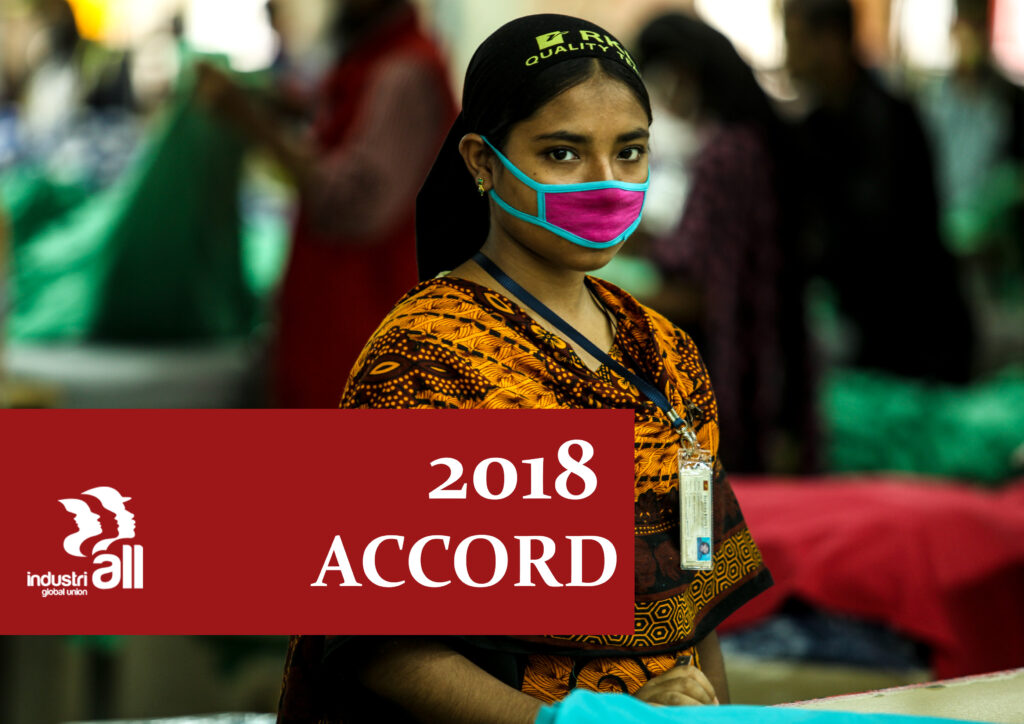14 February, 2018The agreement to improve garment industry safety standards now covers more than 2 million workers
As of today, 101 brands have signed the 2018 Transition Accord, which goes into effect when the 2013 Bangladesh Accord expires in May. The 2018 agreement currently covers more than 1,200 factories and at least 2 million workers. With new brands signing daily, these numbers are growing rapidly. An updated list of signatories can be found here.
Last month, IndustriALL and UNI reached a US$2.3 million settlement under the 2013 Accord with a multinational apparel brand to remedy life-threatening workplace hazards. It was the second settlement of its kind, and one of the largest payments made by a brand to remedy workplace dangers in its supply chain.
“The brands that have signed the 2018 Transition Accord are showing a commitment to transparency and to the safety of Bangladeshi workers,”
said Valter Sanches, general secretary of IndustriALL Global Union.
“The Accord’s legally-binding framework is the only credible way to guarantee that life-threatening fire and structural hazards are remediated in a timely manner in ready-made garment and textile factories.”
Christy Hoffman, deputy general secretary of UNI Global Union, said:
“We were confident that the vast majority of 2013 signatories would sign the 2018 Transition Accord and now that we have broken 100 signatories, we are almost there.”
“We’ve made improvements to the industry and turning away now simply doesn’t make sense. It is also important to make these advancements in worker safety sustainable through functioning Health and Safety Committees and the Transition Accord will put a priority on this work.”
The Bangladesh Accord, which covers 2.5 million workers in Bangladesh’s ready-made garment industry, was established by IndustriALL and UNI in 2013 following the Rana Plaza disaster that killed over 1,100 garment workers and injured more than 2,000. It is the first agreement with a legally-binding mandate requiring fashion brands to require their contractors to eliminate fire, structural, and electrical safety issues.
Accord inspectors have so far carried out inspections on more than 1,800 factories supplying over 200 brands, identifying over 118,500 fire, electrical, and structural hazards.
Eighty-three percent of workplace dangers identified in the Accord’s original round of inspections have been remediated, and 699 Accord factories have completed over 90 percent of the remediation.
The 2018 Transition Accord was signed in June of last year. The legally-binding document goes into effect when the original agreement expires in May, and extends the Accord’s protections until 31 May 2021, unless a joint monitoring committee—comprised of Accord brand signatories, Accord trade union signatories, the Bangladesh Garment Manufacturers and Exporters Association (BGMEA), the International Labour Organization (ILO), and the Government of Bangladesh) unanimously agrees that a set of rigorous conditions for a handover to a national regulatory body have been met prior to then.
